MercoPress. South Atlantic News Agency
Brazil
-
Thursday, October 17th 2013 - 20:12 UTC
Russia making inroads as defence and technology supplier to Brazil
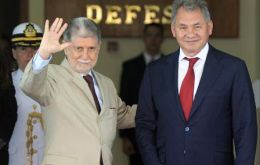
Brazil is pushing ahead with a planned one billion dollars purchase of anti-aircraft missile batteries from Russia in a deal that will cement a strategic defence partnership between the two BRICS nations, the Brazilian Defence Ministry said.
-
Thursday, October 17th 2013 - 05:43 UTC
Brazil’s Sports minister to step down six months before World Cup starts
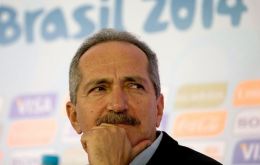
Just six months before his country hosts the World Cup, Brazil Sports Minister Aldo Rebelo said Wednesday he is stepping down to stand as Sao Paulo state governor. December sees a FIFA deadline for all 12 World Cup venues to be ready amid lingering doubts that the giant country can revamp sagging infrastructure in time.
-
Thursday, October 17th 2013 - 05:27 UTC
Paraguay vetoes bill imposing 10% export tax on cereals and oilseeds
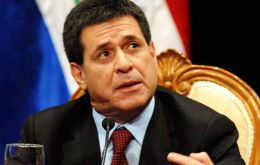
Paraguayan president Horacio Cartes vetoed the bill imposing a 10% tax on export of cereals and oilseeds in their natural state recently approved by a divided Congress, arguing it was “highly distortive and regressive”. The bill now returns to the legislative.
-
Wednesday, October 16th 2013 - 14:02 UTC
Brazil to begin using encrypted email service to avoid cyber spying

Brazilian officials say that all government employees will start using an encrypted email service in an effort to stop foreign spies from intercepting emails. But experts question the ability of Brazil to protect its government emails from the eyes of the U.S. National Security Agency.
-
Wednesday, October 16th 2013 - 08:18 UTC
Hedge funds request US Appeals court to lift hold on a ruling to repay holders

US hedge funds fighting Argentina for repayment on defaulted debt asked a US appeals court on Tuesday to lift its hold on a ruling that ordered Argentina to repay the holders.
-
Wednesday, October 16th 2013 - 08:14 UTC
Clashes with police in Brazil’s main cities in support of striking teachers
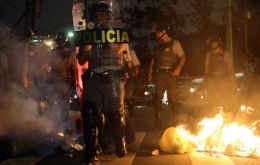
Protesters have clashed with the police in Brazil's largest cities, Rio de Janeiro and Sao Paulo, after marches in support of striking teachers. Soon after a peaceful march by more than 5,000 people ended in Rio, a much smaller masked group attacked shops, set fire to a police car and threw petrol bombs.
-
Tuesday, October 15th 2013 - 23:16 UTC
Lula wishes CFK a full recovery and underlines close relationship between Brazil and Argentina

Former Brazilian president Lula da Silva wished a “full recovery” to Argentine President Cristina Fernández who underwent surgery last week for a head blood clot, and highlighted the close relationship between the two countries: “the last ten years have been the best period in our shared history.”
-
Monday, October 14th 2013 - 05:38 UTC
Brazil considers ‘absurd’ some of Mercosur limitations and points to Argentina

Brazilian president Dilma Rousseff said it was ‘absurd’ that in the context of Mercosur the free circulation of goods was non existent and expressed disappointment with Argentina’s obstacles, but nevertheless insisted dialogue was the only valid instrument to overcome trade differences.
-
Monday, October 14th 2013 - 05:16 UTC
Rousseff reveals picture of infant Dilma and wishes to drive her own Harley Davidson

Brazilian president Dilma Rousseff is speeding up her re-election campaign trying to drop the ‘technocrat-no nonsense’ and ‘people distant’ attitudes which have been some of the main complaints about a nevertheless loveable leader.
-
Sunday, October 13th 2013 - 12:14 UTC
Bye, bye Mercosur: Brazil advances on its own in trade agreement with EU
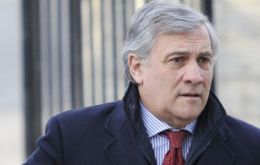
Mercosur has many internal problems and therefore it is much easier to work with Brazil, said European Commission Vice-President for Industry and Entrepreneurship Antonio Tajani who spent this week two days of negotiations with top officials in Brasilia.
